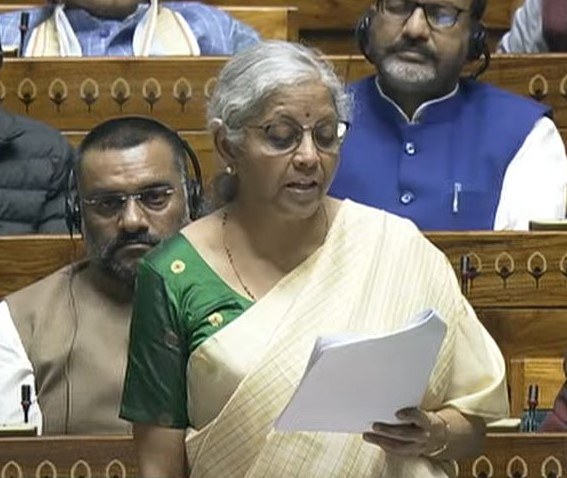The News Freedom
New Delhi, February 8
Finance Minister Nirmala Sitharaman presented a White Paper on the Indian Economy to the Lok Sabha on Thursday, outlining the state of affairs when the BJP-led government assumed power in 2014. The paper described the economy as fragile, with public finances in disarray, economic mismanagement, financial indiscipline, and widespread corruption.
FM @nsitharaman presents 'White paper on Indian Economy' in #LokSabha
वित्त मंत्री निर्मला सीतारमण ने देश की आर्थिक स्थिति पर श्वेत पत्र लोक सभा में पेश किया। #BudgetSession2024 @FinMinIndia pic.twitter.com/uTF99BIcxa
— SansadTV (@sansad_tv) February 8, 2024
The White Paper explained the government’s decision not to release a similar document earlier, citing concerns that it would foster a negative narrative and undermine confidence, including among investors. Instead, the focus was on instilling hope, attracting investments, and garnering support for much-needed reforms.
Sitharaman, quoted in the document, emphasized that the government overcame challenges from the pre-2014 era through effective economic management and governance. This, she attributed to the government’s commitment to right policies, genuine intentions, and prudent decisions, all under the principle of “nation-first” rather than political gains.
With the economy now stabilized and on a path to recovery and growth, the White Paper stressed the importance of addressing the formidable challenges left by the previous UPA government.
The budget session commenced with President Droupadi Murmu’s address to the joint sitting of the two Houses on January 31. This session marks the final session of the current Lok Sabha before the upcoming general elections expected to take place in April-May this year.
Highlights
1. Finance Minister Sitharaman unveils White Paper on Indian Economy in Lok Sabha.
2. The document highlights the fragile state of the economy and governance challenges pre-2014.
3. Decision to forego earlier White Paper to avoid negative narrative and foster confidence.
4. Sitharaman emphasizes the government’s commitment to “nation-first” policies over political gains.
5. The White Paper stresses the need to address challenges inherited from the previous UPA government.
